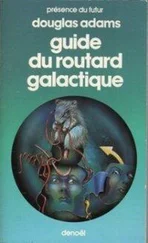Douglas Adams - The Salmon of Doubt
Здесь есть возможность читать онлайн «Douglas Adams - The Salmon of Doubt» весь текст электронной книги совершенно бесплатно (целиком полную версию без сокращений). В некоторых случаях можно слушать аудио, скачать через торрент в формате fb2 и присутствует краткое содержание. Жанр: Фантастика и фэнтези, на английском языке. Описание произведения, (предисловие) а так же отзывы посетителей доступны на портале библиотеки ЛибКат.
- Название:The Salmon of Doubt
- Автор:
- Жанр:
- Год:неизвестен
- ISBN:нет данных
- Рейтинг книги:4 / 5. Голосов: 1
-
Избранное:Добавить в избранное
- Отзывы:
-
Ваша оценка:
- 80
- 1
- 2
- 3
- 4
- 5
The Salmon of Doubt: краткое содержание, описание и аннотация
Предлагаем к чтению аннотацию, описание, краткое содержание или предисловие (зависит от того, что написал сам автор книги «The Salmon of Doubt»). Если вы не нашли необходимую информацию о книге — напишите в комментариях, мы постараемся отыскать её.
The Salmon of Doubt — читать онлайн бесплатно полную книгу (весь текст) целиком
Ниже представлен текст книги, разбитый по страницам. Система сохранения места последней прочитанной страницы, позволяет с удобством читать онлайн бесплатно книгу «The Salmon of Doubt», без необходимости каждый раз заново искать на чём Вы остановились. Поставьте закладку, и сможете в любой момент перейти на страницу, на которой закончили чтение.
Интервал:
Закладка:
They lived on a sheep farm some 850 miles west of Brisbane, where all they ever heard, they said, was nothing. I said that must be very nice and they said that it got rather boring after a while, and that a little light Muzak was balm to them. They refused to go along with my assertion that it was like having Spam stuffed in your ears all day, and after a while the conversation petered out.
There was a bay tucked round on the other side, called Manta Ray Bay, that was full, as you might expect, of manta rays: huge, graceful, underwater flying carpets, one of the most beautiful animals in the world. The man who told me about it said that they were such placid and benign creatures that they would even allow people to ride on their backs underwater.
And I had missed it. For ten years I fretted about this.
Meanwhile I had also heard that Hayman Island itself had changed out of all recognition. It had been bought up by the Australian airline Ansett, who had spent a squillion dollars on ripping the Muzak out of the palm trees and transforming the resort into something that was not only international and superb and sophisticated and so on, but also breathtakingly expensive and, by all accounts, actually pretty good.
So here, I thought, was the angle. I would write an article about taking a Sub Bug all the way to Hayman Island, finding a friendly manta ray, and doing, effectively, a comparative test drive.
Now any sane, rational person might say that that was thoroughly stupid idea, and indeed a lot of them did. However this is that article: a comparative test drive between an underwater propeller-driven, blue and yellow one-person Sub Bug and a giant manta ray.
Did it work out?
Guess.
The sheer fatuous unreality of the idea struck me forcibly as we watched the huge forty-kilogram silver box containing the Sub Bug being wheeled across the tarmac at Hamilton Island airport. There was, I realised, a huge difference between telling people in England that I was going to Australia to do a comparative test drive between a Sub Bug and a manta ray, and telling people in Australia that I had come to do a comparative test drive, etc. I suddenly felt like an extremely idiotic Englishman whom everyone would hate and despise and point at and snigger about and make fun of.
We were ushered graciously aboard. One attendant offered us glasses of champagne while another stood guard by the sliding glass doors that led into the air-conditioned interior.
His job was to push them open for us. He explained that this had become necessary because unfortunately the doors didn’t open automatically when you approached them, and some of their Japanese visitors would often just stand in front of them for whole minutes getting increasingly bewildered and panic-stricken until someone slid them open by hand.
The journey took about an hour, streaking effortlessly over the dark and gleaming sea under a brilliant sun. Smaller lush green islands slid past us in the distance. I watched the long wake of water folding back into the sea behind us, sipped at my champagne, and thought of an old bridge that I know in Sturminster Newton in Dorset. It still has a cast-iron notice bolted to it that warns anybody thinking of damaging or defacing the bridge in any way that the penalty is transportation. To Australia. Now, Sturminster Newton is a lovely town, but it astonishes me that the bridge is still standing. Jane, who is much better at reading guide books than I am (I always read them on the way back to see what I missed, it’s often quite a shock), discovered something wonderful in the book she was reading. Did I know, she asked, that Brisbane was originally founded as a penal colony for convicts who committed new offences after they had arrived in Australia?
I spent a good half hour enjoying this single piece of information. It was wonderful. There we British sat, poor grey sodden creatures, huddling under our grey northern sky that seeped like a rancid dish cloth, busy sending those we wished to punish most severely to sit in bright sunlight on the coast of the Tasman Sea at the southern tip of the Great Barrier Reef and maybe do some surfing too. No wonder the Australians have a particular kind of smile that they reserve exclusively for use on the British.
From offshore, Hayman Island looks deserted, just a large verdant hill fringed with pale beaches set in a dark blue sea. Only from very close to can you spot the long, low hotel nestling among the palms. There is hardly anywhere you can get a good look at it from, since it is virtually smothered with what look like giant feral pot plants. It snakes and winds its way through the greenery: pillars, fountains, shaded plazas, sun decks, discreet little shops selling heart-stoppingly expensive little things with designer labels you’d have to carefully unpick, and indiscreetly large swimming pools. It was pretty fabulous. We adored it immediately. It was exactly the sort of place that twenty years ago I would have despised anybody for going to. One of the great things about growing older and getting things like freebie holidays is that you can finally get to do all those things that you used to despise other people for doing: sitting around on a sundeck wearing sunglasses that cost about a year’s student grant, ordering up grotesque indulgences on room service, being pampered and waited on hand and foot by—and get this, this is a very important and significant part of what happens to you on Hayman Island—staff who don’t just say “No worries” when you thank them for topping up your champagne glass, they actually say “No worries at all.” They truly and sincerely want you, specifically you, not just any old fat git lying around in a sun hat, but you personally, to feel that there is nothing in this best of all possible worlds that you have come to for you to concern yourself about in any way at all. Really. Really. We don’t even despise you. Really. No worries at all. If only it were true. I had my Sub Bug to worry about, of course. This huge great thing that I had lugged ten times farther than Moses had dragged the children of Israel, just in order to see how it compared with a manta ray as a means of getting about underwater. It had been quietly removed from the boat in its huge silver-coloured box and discreetly stored at the dive centre where nobody could see it or guess at its purpose.
“We have your Sub Bug,” said a voice.
“Ah yes,” I said. “Yes, the, er, Sub Bug. Thank you very much. Yes, is that all right?”
“No worries,” said the voice, “at all.”
“Ah. Good.”
“So if you like, why don’t you come down to the dive centre in the morning. We can check it out, see how it works, see what you need, take it out for a spin, whatever you want. We’ll just do whatever we can to help you.” “Oh. Thank you. Thank you very much.”
“No worries at all.”
The voice was very friendly and reassuring. My jet-lagged paranoia began to subside a little. We went and had dinner.
The resort had four restaurants, and we chose the Oriental Seafood Restaurant. Seafood in Australia mostly seems to consist of barramundi, Morton Bay bugs, and everything else.
“Morton Bay bugs,” said our smiling Chinese waitress, “are like lobsters, only this big.” She held her two forefingers about three inches apart. “We smash their head in. Is very nice. You will like.”
We didn’t like that much, in fact. The restaurant was very smartly decorated in Japanese-style black and white, but the food looked better than it tasted and they played Muzak at us. For a moment I felt the ghost of the old, naff Hayman Island stalking through its glamorously tasteful new home. The other restaurants available were Polynesian, Italian, and the one to which they gave top billing, La Fontaine, a French restaurant that we decided to keep for the last of our four nights, though we had nagging doubts. I tend to like local cooking unless I’m in Wales, and the thought of French haute cuisine transported here did not fill me with confidence. I wanted to keep an open mind, though, because as it happens one of the best meals I ever had was steamed crab and chateaubriand of zebu cooked by a French-trained chef in the south of Madagascar. But then the French had infested Madagascar for seventy-five years and bequeathed it a rich legacy of culinary skills and hideous bureaucracy. We decided at least to look at La Fontaine that night. As we prowled our way toward it, we traversed acres of beautifully laid carpet, passed grand pianos, chandeliers, and reproduction Louis XVI furniture. I found myself racking my brains for any memory I might have of perhaps some schismatic eighteenth-century French court that might have been set up, however briefly, on the Great Barrier Reef. I asked Jane, who is an historian, and she assured me that I was being extremely silly, and so we went to bed.
Читать дальшеИнтервал:
Закладка:
Похожие книги на «The Salmon of Doubt»
Представляем Вашему вниманию похожие книги на «The Salmon of Doubt» списком для выбора. Мы отобрали схожую по названию и смыслу литературу в надежде предоставить читателям больше вариантов отыскать новые, интересные, ещё непрочитанные произведения.
Обсуждение, отзывы о книге «The Salmon of Doubt» и просто собственные мнения читателей. Оставьте ваши комментарии, напишите, что Вы думаете о произведении, его смысле или главных героях. Укажите что конкретно понравилось, а что нет, и почему Вы так считаете.







